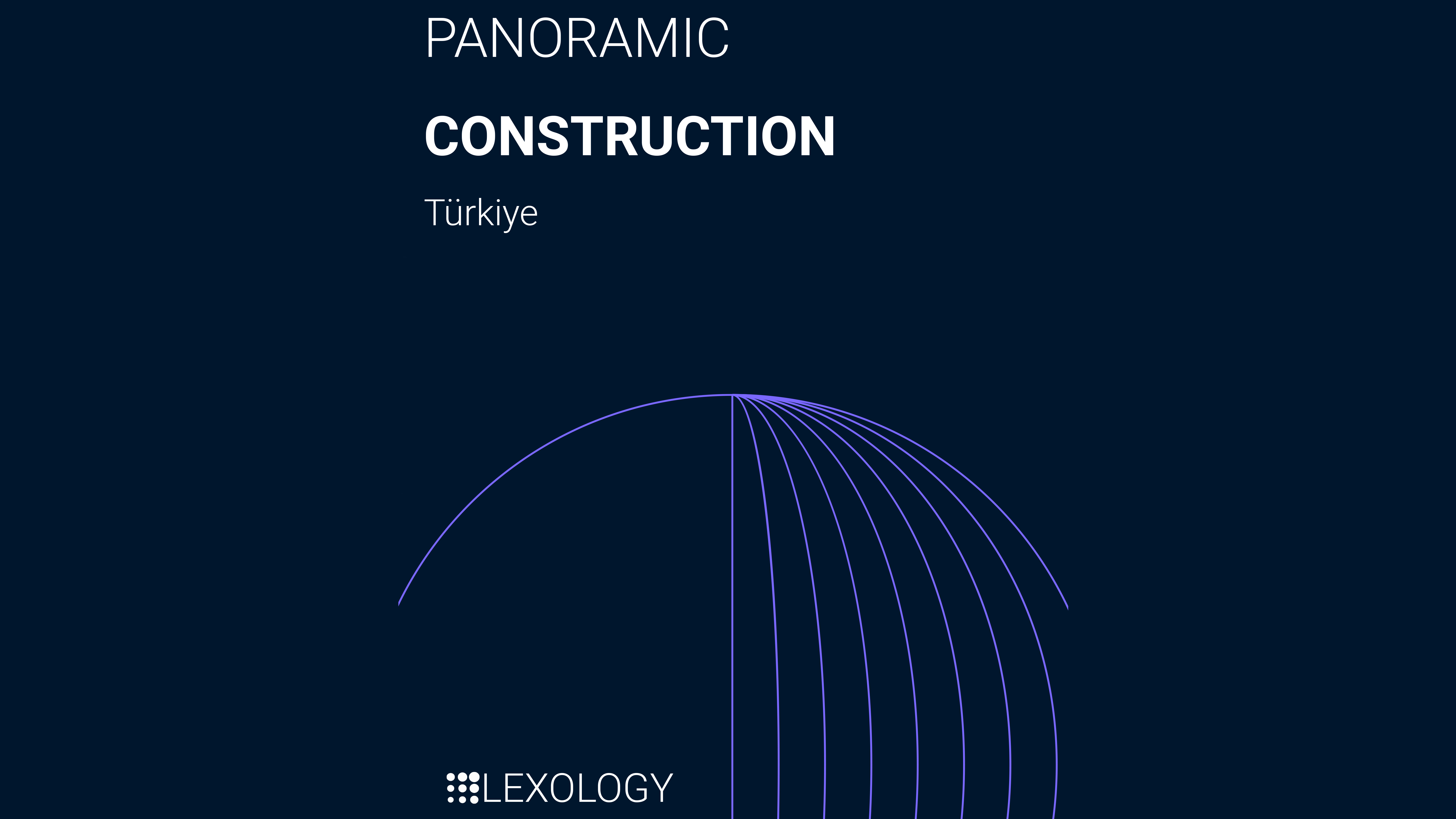Lexology Panoramic: Construction 2026 - Türkiye
Construction in Türkiye
Türkiye's construction sector stands as a key pillar of its economy and continues to attract both domestic and foreign players seeking long-term opportunities. From regulatory entry points to contract management and dispute resolution, understanding the jurisdiction’s legal framework is essential for industry stakeholders.
Market Access and Licensing
Foreign contractors can operate in Türkiye through locally incorporated companies, branches or liaison offices under Foreign Direct Investment Law No. 4875. While there is no mandatory licensing regime for foreign entities, engineers and architects involved in technical submissions must be registered with the national chambers. Work permits are required for foreign employees, and employers must maintain a minimum local workforce ratio.
Contract Formation and Language Requirements
Türkiye adheres to the principle of freedom of contract, provided that agreements comply with public order and mandatory provisions of law. There are no compulsory contract templates for private projects. However, if the contract involves property rights over immovable assets situated in Türkiye, Turkish law must govern. When public authorities are involved, Law No. 805 requires that all contracts and official correspondence be executed in Turkish.
Public Procurement and Anti-Corruption Compliance
Public sector contracts are governed by Law No. 4734, which ensures transparency and equal access for foreign bidders. Nevertheless, certain price advantages and tender eligibility thresholds continue to favour local contractors. Anti-bribery rules are strictly applied under both the procurement law and the Turkish Criminal Code, with severe penalties for both public and private sector misconduct.
Project Structures and Liability Rules
Most large-scale projects follow a main contractor–subcontractor model. Joint ventures and consortia are treated differently under Turkish law—while joint ventures carry joint and several liability, consortia members are liable only for their defined scopes. Contractors are subject to liability for defective works for five years, or up to 20 years in cases of gross negligence. Liability waivers for even slight negligence are unenforceable in certain regulated sectors.
Insurance, Payment and Risk Allocation
It is common practice for contractors to secure construction all-risk insurance, third-party liability cover and, for international ventures, political risk insurance. Payment mechanisms often include interim certificates and advance payments. Turkish law allows contractors to register a lien over the employer’s property unless this is expressly waived by contract. Conditional payment clauses such as ‘pay-if-paid’ or ‘pay-when-paid’ require careful drafting to remain enforceable.
Dispute Resolution Trends
Arbitration has become the preferred mechanism for resolving construction disputes in Türkiye, particularly where technical expertise and procedural efficiency are crucial. International projects typically favour the ICC, while local and regional projects increasingly turn to the Istanbul Arbitration Centre (ISTAC). Türkiye is a party to the New York Convention, which facilitates enforcement of foreign arbitral awards. Mediation, now mandatory in commercial disputes, is also gaining ground in construction-related matters.
Labour and Exit Requirements
Although there is no fixed quota for local labour, employers must maintain a minimum ratio—five Turkish workers per foreign employee. Upon demobilisation or project exit, contractors must fulfil tax, labour and administrative obligations, including deregistration from utilities and government records.
Environmental Obligations and Investment Protection
Environmental compliance is integral to project approval processes. Environmental Impact Assessments (EIA) are mandatory in designated cases, and approvals cannot be issued without clearance. Environmental violations may lead to criminal sanctions. Türkiye also offers robust investment protections through over 100 bilateral investment treaties and 80+ double taxation agreements. While profit repatriation is generally unrestricted, some recent measures have limited the use of foreign currency in domestic contracts between residents.
Policy Developments
Recent legislation, including Presidential Decree No. 5203, has introduced tools for price adjustments and contract transfers in public projects under specific conditions. Türkiye’s Twelfth Development Plan (2024–2028) further outlines reforms aimed at localisation, sustainable growth and modernised procurement processes within the construction ecosystem.
Prepared as part of our contribution to Lexology’s Construction 2026 Panoramic Guide, this article provides a legal and strategic overview of the construction sector in Türkiye. It highlights key regulatory requirements, contract structures, dispute resolution methods, and compliance considerations that shape both local and cross-border projects. The content offers actionable insight for investors, in-house counsel, and project developers navigating the Turkish market.
